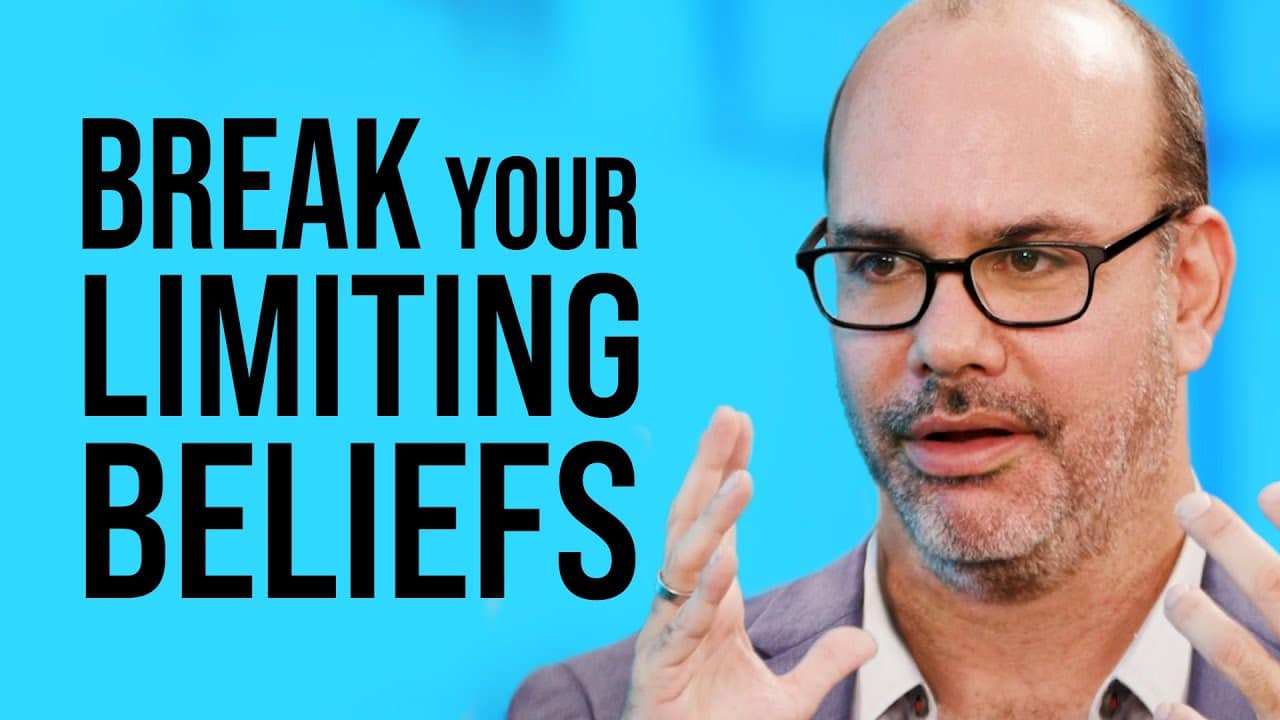*****
Summary of Transcript:
The discussion centers around beliefs and how they are formed. The guest explains that ideas start developing early in life as the brain builds models of the world. Some thoughts, such as beliefs about gravity and shadows, are innate, while others are learned through experience or socialization. The brain builds a simulated picture of the world based on hypotheses and inferences, which can result in perceptual illusions that people believe to be true. The conversation highlights the importance of understanding that our perception is a constructed reality, not necessarily objective truth. The guest also mentions brain plasticity as a way to change one’s beliefs and improve their quality of life.
*****
Summary of Description:
Dr. Jonas Kaplan, Associate Professor of Psychology at USC, discusses the brain’s mechanisms for filling in gaps in knowledge and creating beliefs in an episode with Tom on the “Impact Theory” podcast. They explore research studies demonstrating the brain’s freaky nature, ways to hack the overprotective nature of the brain, and how to challenge beliefs through encountering contrary evidence. The conversation covers mindfulness, self-narrative, the dissolution of self, and the interconnectedness of brain regions. They also discuss the brain’s desire for consistency and developing models of the world necessary for navigation.
*****
Exploring the Freaky Nature of Your Brain: Insights from Dr. Jonas Kaplan’s Conversation with Tom
Introduction
Dr. Jonas Kaplan, an Associate Professor of Psychology, joins Tom for a conversation that delves into illusions, reality, the executive function network, and much more. According to Dr. Kaplan, the brain creates a simulated picture of the world it has to navigate, leading to the formation of beliefs. However, challenging those beliefs poses a challenge to the overprotective nature of your brain.
Brain Illusions vs. Reality
Dr. Kaplan explains that the brain builds a model of the world it has to navigate, leading to the formation of beliefs. The brain wants a consistent view of the world, which motivates it to find information consistent with the individual’s beliefs. However, an individual may encounter information that challenges those beliefs, which may lead to feelings of discomfort or uncertainty.
Split Brain Confabulation
Dr. Kaplan discusses how split-brain confabulation can lead to a situation in which two sides of the brain disagree, with one side knowing something the other does not know. This can lead to an individual feeling like they are two different people, with each side of their brain having different beliefs about the world.
Executive Function Network
Dr. Kaplan discusses how the executive function network is critical to keeping the brain on-task and monitoring behavior. He notes that individuals with damage to their executive function networks can act unexpectedly because there is no process for evaluating the appropriateness of their actions.
Changing Your Beliefs
Dr. Kaplan acknowledges that individuals can find it challenging to change their beliefs because it would mean relinquishing their sense of self. The desire to remain consistent and protect one’s beliefs can be a barrier to personal growth, accepting new information, and achieving genuine self-awareness.
When Identity Is Challenged
The brain’s executive function network plays a role in maintaining a consistent view of the world, which can include protecting deeply held beliefs. However, questioning one’s thoughts is essential to personal growth and awareness. Dr. Kaplan discusses how personal identity is tied to our ideas and perceptions, particularly when challenged.
Mindfulness & Self Narrative
Dr. Kaplan discusses how mindfulness, or being aware of one’s thoughts, feelings, and surroundings, can help individuals achieve a more objective view of their mental states. He suggests that approaching your thoughts and feelings with curiosity can lead to increased self-awareness and self-reflection.
Dissolution of Self
Dr. Kaplan explains how the concept of the “dissolution of self” can be most easily described as a “loss of ego.” He suggests that individuals can achieve this state through meditation or psychedelic experiences that give them a sense of something greater than themselves.
Meaning Making & Stories
Dr. Kaplan discusses how the brain engages in “meaning-making” and finds patterns in the information it encounters. This process is critical to forming beliefs and can lead to constructing stories to explain events.
Filmmaking & Neuroscience
Dr. Kaplan discusses how neuroscience can be incorporated into filmmaking through the techniques used to create an immersive experience for the viewer. The viewer can feel like they are part of the scene through specific camera angles, shots, and other elements, even though it is on a screen.
Hacking Your Brain
Dr. Kaplan suggests that individuals can hack their brains to get past the overprotective nature of their beliefs. He means creating an environment where ideas can be tested and challenged, such as by engaging in debates or exposing oneself to new information.
Brain Body Malfunction
Dr. Kaplan discusses how brain-body malfunctions can lead to out-of-body experiences or detachment from the physical body. He notes that these experiences can be incredibly intense and profound but may be difficult for individuals to communicate with others.
Homunculus Sensory Map
Dr. Kaplan explains how the brain’s homunculus sensory map represents the body’s sensory receptors. He notes that the map can be distorted in individuals with missing limbs or other sensory perception issues.
Transcranial Magnetic Stimulation
Dr. Kaplan discusses transcranial magnetic stimulation to affect the brain’s neural activity. He notes that the procedure can be used for various neurological conditions and has shown promise in treating depression.
Conclusion
Dr. Kaplan provides insights into how the brain constructs beliefs and the challenges of changing them. He suggests that mindfulness and self-reflection can increase self-awareness and personal growth. Additionally, he advises individuals to challenge their beliefs to open up new possibilities instead of remaining locked in predictable thought patterns.
*****
Source Description
It was reported that roughly 1 in 20 people say having at least one hallucination in a lifetime. Maybe it was drug-induced or simply a dream. Either way, how can you have vivid imagery about what feels like reality? Dr. Jonas Kaplan joins Tom in this conversation to discuss how your brain fills in the gaps of its break-in knowledge.
The brain is truly fascinating to study and so important to understand when you want to be more open-minded and question your beliefs or better understand what reality truly is. Part of seeing reality as it is versus how your brain predicts it is coming face to face with information that challenges your beliefs. Jonas and Tom explore research studies that reveal the freaky nature of how our brains work and ways you can hack past the overprotective nature of your brain.
Dr. Jonas Kaplan is the Associate Professor of Psychology at USC Brain and Creativity Institute, Co-Director of the Dana & David Dornsife Cognitive Neuroimaging Center, and Associate Director for Mindfulness and Neuroimaging at the USC Center for Mindfulness Science
SHOW NOTES:
0:00 | Introduction Jonas Kaplan
0:21 | Brain Illusions vs. Reality
10:37 | Split Brain Confabulation
22:39 | Executive Function Network
26:04 | Changing Your Beliefs
32:20 | When Identity Is Challenged
41:37 | Mindfulness & Self Narrative
53:02 | Dissolution of Self
1:02:19 | Meaning Making & Stories
1:08:27 | Filmmaking & Neuroscience
1:13:51 | Hacking Your Brain
1:19:39 | Brain Body Malfunction
1:22:48 | Homunculus Sensory Map
1:28:23 | Transcranial Magnetic Stimulation
QUOTES:
“The brain builds a model of the world that it has to navigate, right? It builds a simulated picture of what the world is like. That’s where beliefs come from.” [2:29]
“The brain wants to create a consistent view of the world. And that motivates us to find information consistent with what we think.” [8:49]
“Everything’s so interconnected that each region of the brain is not corresponding to one particular mental function for the most part…” [24:30]
“Most of us organize our lives so that we never even encounter evidence that challenges our beliefs.” [29:35]
“Feelings are the brain signals that there’s some kind of a challenge going on to the body.” [33:37]
“There is probably some value in maintaining our beliefs, and protecting them to some degree, and also in sharing them with other people and building the connections that we have with other people based on shared models of reality” [38:01]
Follow Jonas Kaplan:
Website: http://www.jonaskaplan.com/
Podcast: https://floatpodcast.libsyn.com/
Twitter: https://twitter.com/jonas_kaplan


Comments are closed